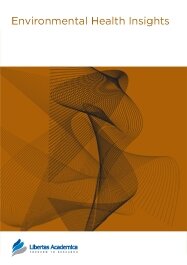

Publication Date: 28 Apr 2011
Type: Original Research
Journal: Environmental Health Insights
Citation: Environmental Health Insights 2011:5 9-20
doi: 10.4137/EHI.S6974

The impact of current and historical waste disposal practices on the environment and human health of Indigenous people in First Nations communities has yet to be adequately addressed. Solid waste disposal has been identified as a major environmental threat to First Nations Communities. A community-based participatory research project (CBPR) was initiated by the Saskatoon Tribal Council Health and Family Services Incorporated to investigate concerns related to waste disposal in three Saskatchewan First Nations Communities. Utilizing a qualitative approach, we aimed to gain an understanding of past and present waste disposal practices and to identify any human and environmental health concerns related to these practices. One to one interviews and sharing circles were conducted with Elders. Elders were asked to share their perspectives on past and present waste disposal practices and to comment on the possible impacts these practices may have on the environment and community health. Historically waste disposal practices were similar among communities. The homeowner generated small volumes of waste, was exclusively responsible for disposal and utilized a backyard pit. Overtime waste disposal evolved to weekly pick-up of un-segregated garbage with waste disposal and open trash burning in a community dump site. Dump site locations and open trash burning were identified as significant health issues related to waste disposal practices in these communities. This research raises issues of inequity in the management of waste in First Nations Communities. It highlights the need for long-term sustainable funding to support community-based waste disposal and management strategies and the development of First Nations centered and delivered educational programs to encourage the adoption and implementation of waste reduction, reutilization and recycling activities in these communities.
PDF (545.38 KB PDF FORMAT)
RIS citation (ENDNOTE, REFERENCE MANAGER, PROCITE, REFWORKS)
BibTex citation (BIBDESK, LATEX)
XML
PMC HTML

My experience in publishing our manuscript in Environmental Health Insights was positive. The speed of processing was the fastest of all the journals I have encountered. The peer review and editorial comments were to-the-point and professional. The open reader access greatly enhances article visibility. I would publish again in this journal if I have suitable studies to publish.
Facebook Google+ Twitter
Pinterest Tumblr YouTube